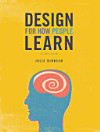Explaining Science in the Classroom
Nov 1996 · McGraw-Hill Education (UK)
Ebook
162
Pages
reportRatings and reviews aren’t verified Learn More
About this ebook
"This is an impressive book. It is an example of that rare item - a book about complex scientific ideas, expressed in clear, simple language - built on real teacher - learner conversations. Starting in the classroom, or the laboratory, with the most common occurence - a teacher offering an explanation, it proceeds by analysing the nature of specific explanations so that teachers can gain fuller insights into what is happening. Having teased out the processes of explanation, the authors then reconstruct them showing how elaboration, transformation and demonstration can enhance the understanding of the learner."
Professor Peter Mortimore
* How do science teachers explain science to students?
* What makes explanations work?
Is explaining science just an art, or can it be described, taught and learned? That is the question posed by this book. From extensive classroom observations, the authors give vivid descriptions of how teachers explain science to students, and provide their account with a sound theoretical basis.
Attention is given to the ways in which needs for explanation are generated, how the strange new entities of science - from genes to electrons - are created through talk and action, how knowledge is transformed to become explainable, and how demonstrations link explanation and reality. Different styles of explanation are illustrated, from the 'teller of tales' to those who ask students to 'say it my way'.
Explaining Science in the Classroom is a new and exciting departure in science education. It brings together science educators and specialists in discourse and communication, to reach a new synthesis of ideas. The book offers science teachers very practical help and insight.
Professor Peter Mortimore
* How do science teachers explain science to students?
* What makes explanations work?
Is explaining science just an art, or can it be described, taught and learned? That is the question posed by this book. From extensive classroom observations, the authors give vivid descriptions of how teachers explain science to students, and provide their account with a sound theoretical basis.
Attention is given to the ways in which needs for explanation are generated, how the strange new entities of science - from genes to electrons - are created through talk and action, how knowledge is transformed to become explainable, and how demonstrations link explanation and reality. Different styles of explanation are illustrated, from the 'teller of tales' to those who ask students to 'say it my way'.
Explaining Science in the Classroom is a new and exciting departure in science education. It brings together science educators and specialists in discourse and communication, to reach a new synthesis of ideas. The book offers science teachers very practical help and insight.
About the author
Jon Ogborn is Professor of Science Education. Responsible (with Paul Black) for Nuffield Advanced Physics, he has also done research on basic categories of thinking, on computer tools to develop reasoning, and on the learning and communicating of science.
Gunther Kress is Professor of Education/English. He has written many books on language, visual and other non-verbal kinds of communication, and on the social nature of communication. His current interests are in literacies, curriculum and social futures.
Isabel Martins taught physics at high school level and studied science education in Brazil and the U.K. She is now a researcher in science education and is interested in models of cognition and in the communication of science to lay audiences.
Kieran McGillicuddy is a linguist and former high school teacher who studied at the University of Sydney, and is currently interested in the inter-relationships of language, action and the meaning of things. He has also taught communication and media studies.
All four authors work at the Institute of Education, University of London.
Gunther Kress is Professor of Education/English. He has written many books on language, visual and other non-verbal kinds of communication, and on the social nature of communication. His current interests are in literacies, curriculum and social futures.
Isabel Martins taught physics at high school level and studied science education in Brazil and the U.K. She is now a researcher in science education and is interested in models of cognition and in the communication of science to lay audiences.
Kieran McGillicuddy is a linguist and former high school teacher who studied at the University of Sydney, and is currently interested in the inter-relationships of language, action and the meaning of things. He has also taught communication and media studies.
All four authors work at the Institute of Education, University of London.
Rate this ebook
Tell us what you think.
Reading information
Smartphones and tablets
Install the Google Play Books app for Android and iPad/iPhone. It syncs automatically with your account and allows you to read online or offline wherever you are.
Laptops and computers
You can listen to audiobooks purchased on Google Play using your computer's web browser.
eReaders and other devices
To read on e-ink devices like Kobo eReaders, you'll need to download a file and transfer it to your device. Follow the detailed Help Center instructions to transfer the files to supported eReaders.






